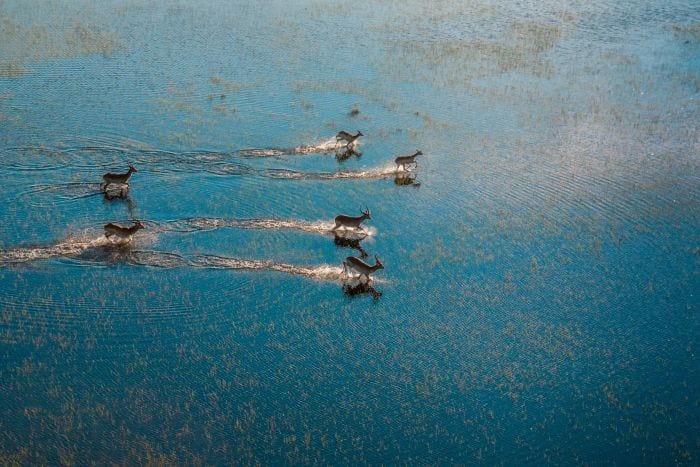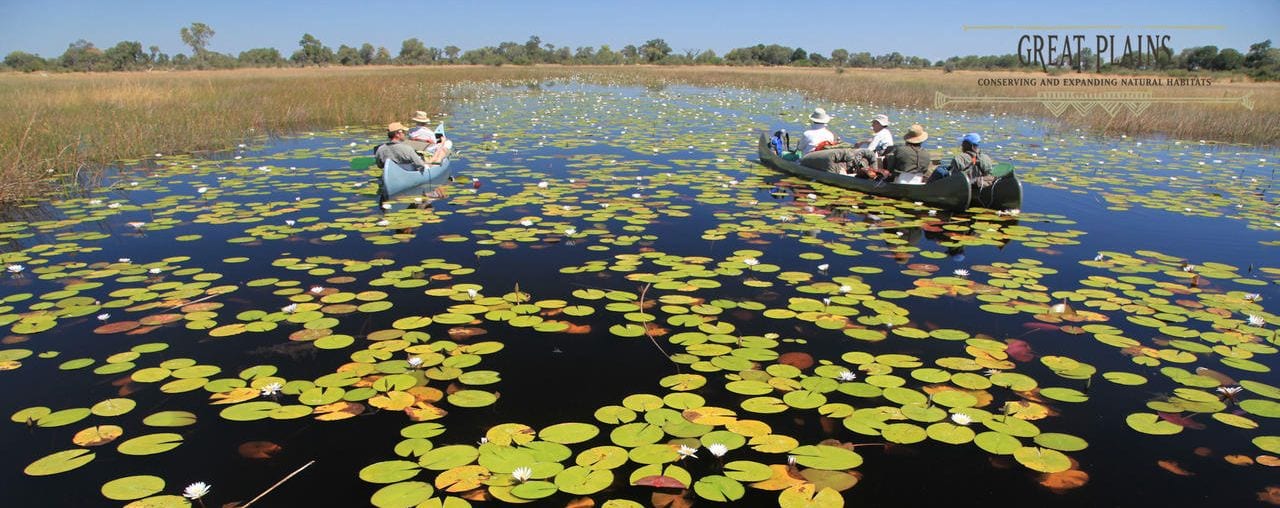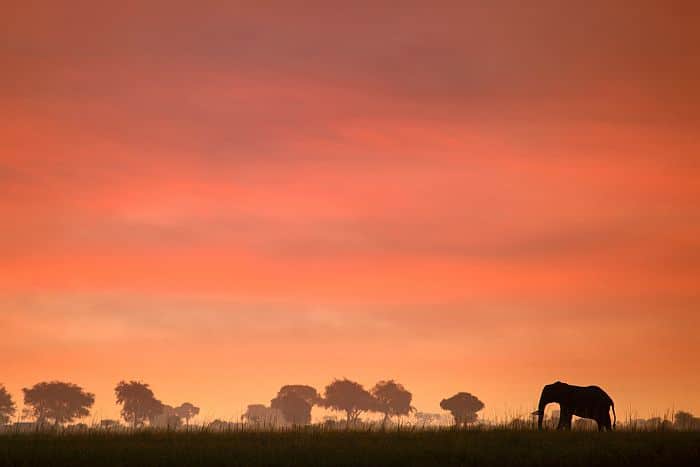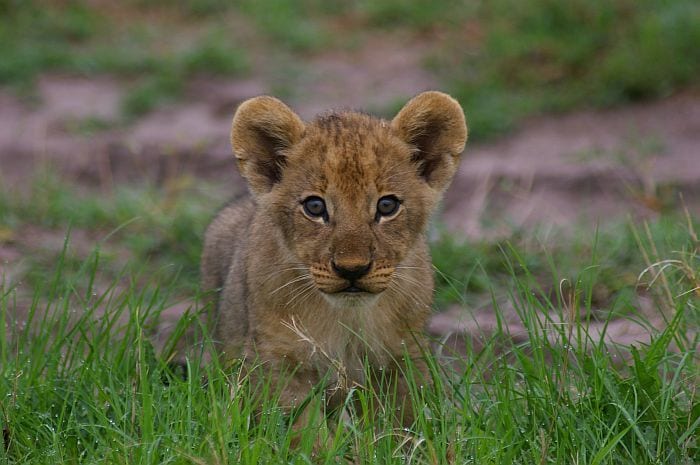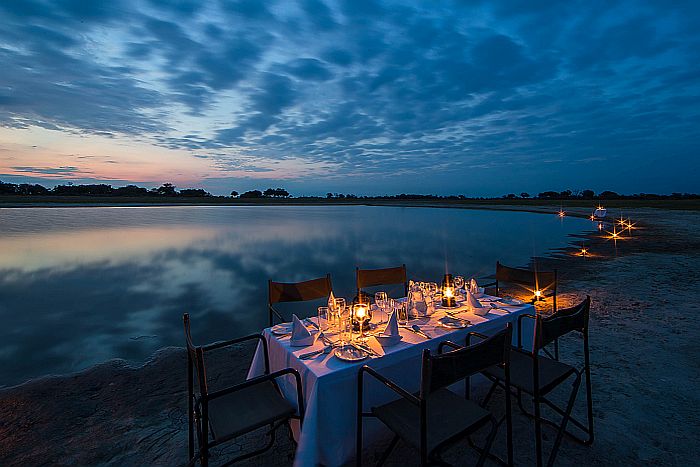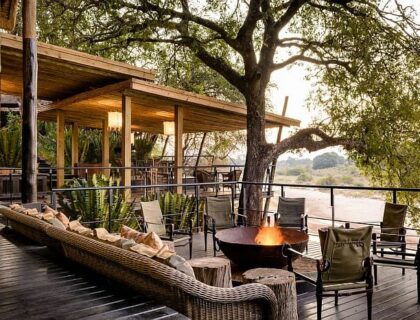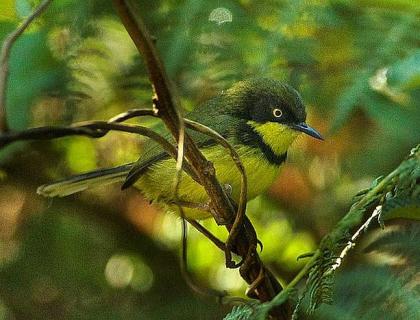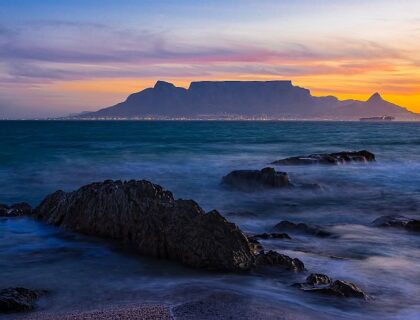The Okavango Delta in Botswana is the largest and most beautiful oasis in Africa – an isolated, lush green paradise with some of the richest wildlife in the world. But what causes the annual Okavango Delta flood? When does it happen? Why do some lodges have water all year. But other safari lodges only have seasonal water during the flood. Or not at all?
So I thought I’d try to address these questions in more detail.
Where do the Okavango Delta flood waters come from?
The Okavango Delta is a conundrum – a unique wetland system surviving on the sands of the vast Kalahari Desert in Botswana. The source of the Okavango Delta flood actually lies in the extremely wet highlands of Angola, some 500km to the north of Botswana. The summer wet season in Angola leads to a dramatic swelling of the Cubango River. This then flows south, through Namibia, and away from the sea. It gathers ever more water until it finally reaches Botswana, where the river becomes known as the Okavango. But here, the fate of the river is determined by a series of fault lines deep below the desert surface. Once the river passes over the first fault line, it splits into several channels. And forms a vast, fan-shaped, astonishingly luxuriant wilderness of flood plain and forest, stream and lagoon.
When the water meets the final two fault lines, the water is literally dammed and cannot go further. (Before these fault lines, the river flowed through the Okavango Delta and the Makgadikgadi pans. And it probably flowed alll the way to the Indian Ocean by meeting up with the Limpopo river.)
This is the largest inland delta in the world. And unlike other delta’s it doesn’t flow into an ocean or lake. This verdant watery paradise in a desert country is naturally the ideal breeding ground for an incredible diversity of wildlife.
When does the Okavango Delta Flood?
Something that often confuses people is that all of Botswana, including the Okavango Delta, has a summer rainfall. And yet the flood occurs in the dry winter months… The rain falls during the summer and first seeps into the parched ground before the rivers start flowing. It takes months for the flow of water to reach the Okavango Delta. (The Okavango delta flood travels very slowly at only a kilometre a day. This is partly because of the shallow gradient of the land. And also because the swamp vegetation slows the water.)
The flood starts coming into the northern reaches of the Okavango Delta in late April. And makes its way steadily down reaching many camps sometime in June or possibly early July depending on their precise location. And the flood peaks in August. As it is the dry season, gradually the flood water evaporates over the next few months. Leaving its valuable river salts and minerals in the ground.
(The evocative mokoro trips – a traditional dugout canoe made from an ebony or sausage tree – largely take place in these shallow seasonal flood plains of the Okavango Delta as it needs shallow water to be an effective means of transport.)
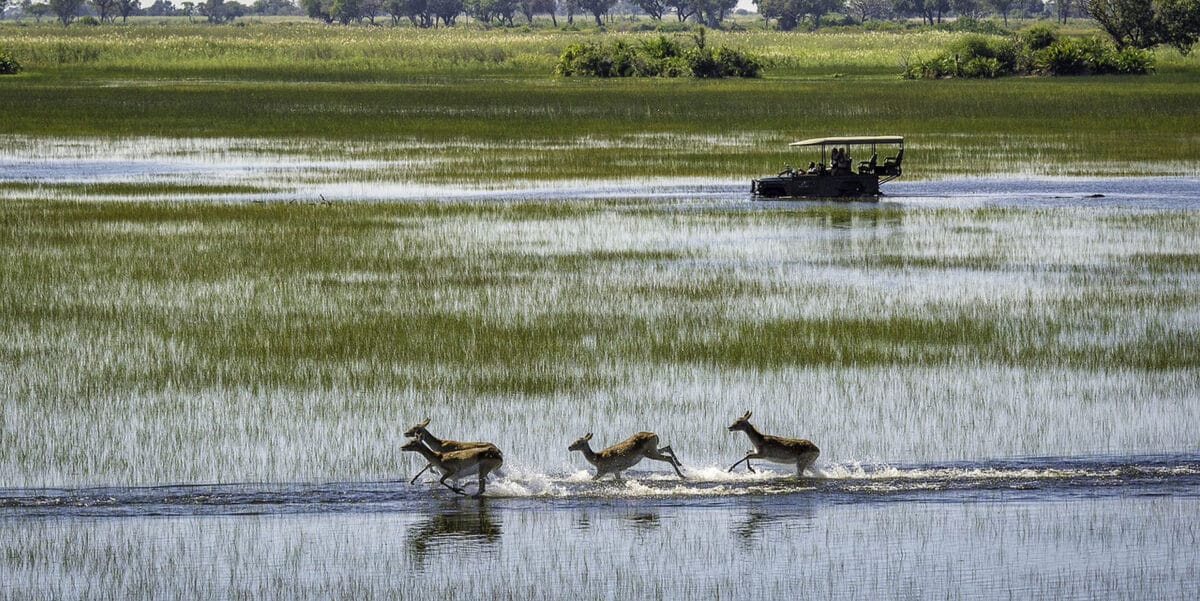
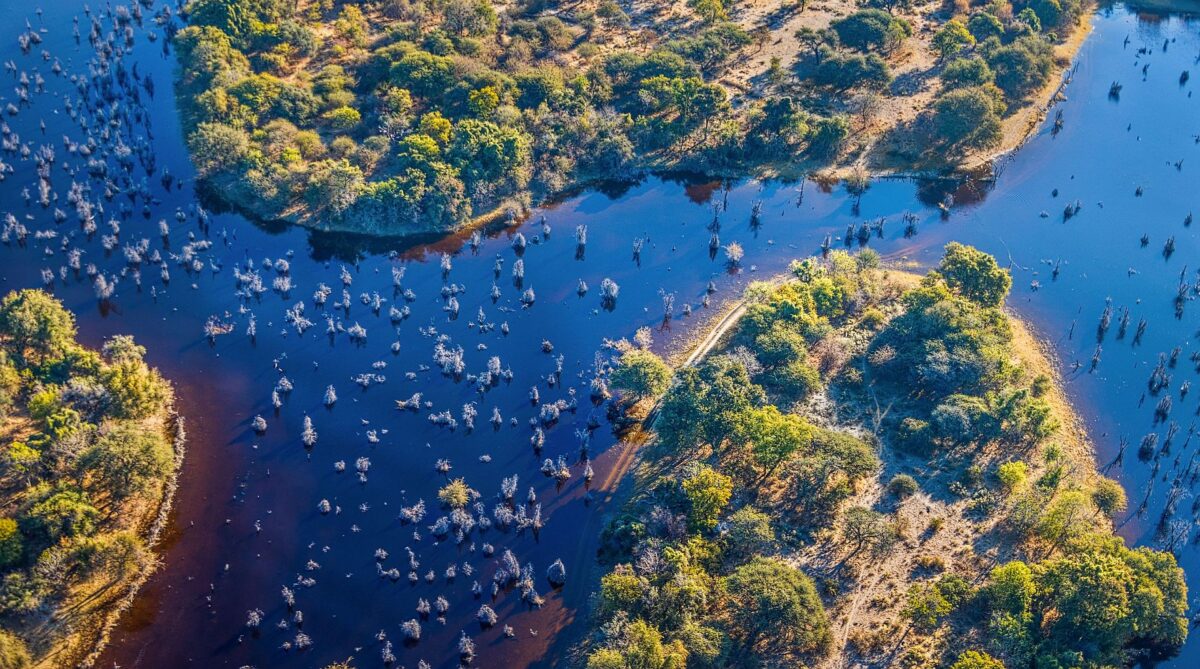
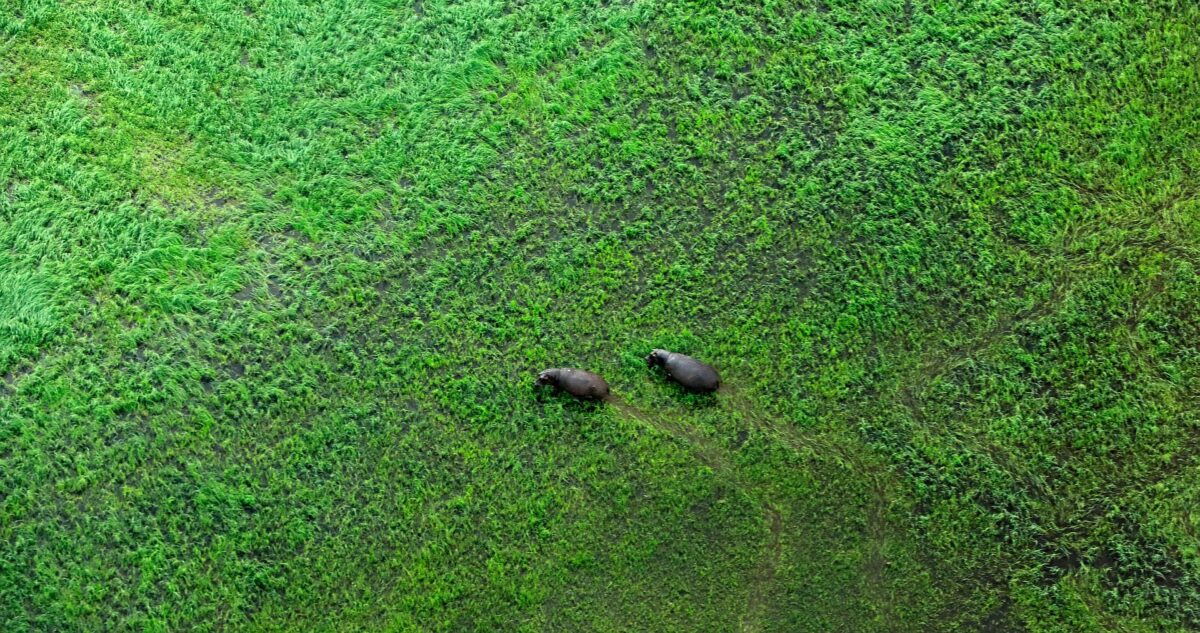
Why do some camps have water all year round, and others only seasonally?
| https://www.cedarberg-travel.com/destination/botswana-safari/okavango-delta-safari/moremi-game-reserve/ |
In the south-eastern part of the Okavango Delta lies a slightly higher area of land, known as Chiefs Island. This forms part of the Moremi Game Reserve and the higher ground means that the waters never flood this area. The lodges here are predominantly ‘land camps’ offering game drives. However , if they’re on the edges of the Moremi, they may offer some water-based activities during the flood period of July to September. But this would be secondary to their main focus which is game drives. Thus a ‘seasonal water’ camp is one which has water only during this flood period.
To the north of the Moremi lie some deep river channels. These are fed firstly by the summer rains. And then by the Okavango Delta. The camps in this area such as Xakanaxa, Kwara Camp, Vumburu Plains and Shinde Camp are what we call ‘mixed-activity’ camps (for want of a more elegant term!) In that they offer a choice of water or land based game-viewing activities throughout the year because of the presence of deep river channels.
Broadly speaking, to the south of the Moremi are the seasonal camps. These focus on game drives in the green season. And then offer a mix of activities as the flood comes in.
Download our Guide to Botswana Safaris
Major Game Reserves, Sample Tours & Camps, plus the low-down on Best Time to Visit! Get our free guide hereKate Bergh
Co-founder & Director
Changes Year to Year
As the Okavango Delta flood varies from year to year, no-one can say precisely when the flood waters will arrive. So if you are booking early on in the season, in June for example, there may be an element of luck. (But the shoulder season pricing reflects this). Depending on the camp’s exact location, land-based activities can be quite limited in the full flood. As the water literally surrounds the camps. The advantage is that the animals also get restricted to limited island areas. This makes for excellent game-viewing on foot, by mokoro or by boat.
Finally further towards the northern and western stretches of the Delta are the ‘permanent water camps’. Which, as their name suggests, offer boat-based game-viewing and game walks on the surrounding islands. Thought the game-viewing here is more limited, the birding is excellent. It’s worth noting that mokoro trips are not usually on offer at permanent water camps as the water is simply too deep to pole…
Tips for the safari visitor to Botswana – stay in more than one place if possible
Change is the essence of the Okavango Delta. The delta changes from year to year depending on flood levels. The watercourses are constantly changing due to annual flooding forging new channels as well as a combination of sediment, seismic activity and the construction of termite mounds. The hippos are continually opening up of new channels by grazing whilst other channels close up due to vegetation growth.
This dynamic nature leads to great diversity of water depth, soils, vegetation and animal distribution. The exact location of each camp dictates what activities are available and when. And this can vary within a short distance. IF you are booking well in advance, we’ll be able to match a particular camp to your needs.
So it follows that staying at two different camps in different habitats will give you the best feel for the dynamic mood of the Okavango Delta.
Get the Ball Rolling
Love the sound of the Okavango Delta? Tell us what you had in mind & we will send a proposal to you
Start Chatting with UsOther articles on Botswana Safaris
This article was written by Cedarberg Africa
Cedarberg Africa is a specialist tour operator for Southern Africa including Botswana. We focus on upmarket tailormade safaris for discerning and busy people. We make our money on the difference between our trade rates and the rates that are available to you, so that means that effectively all our years of experience and expertise comes free of charge…
Contact us if you’d like a tailormade safari quote for Botswana.

